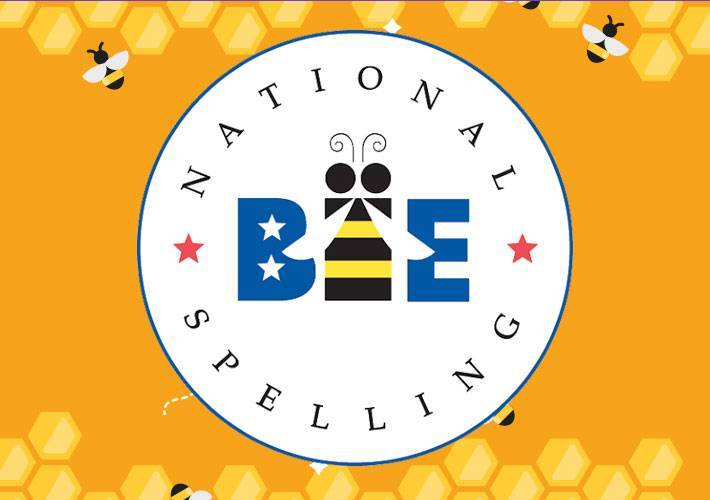How to Prepare for English Spelling Bee?

How to prepare for English spelling Bee?
Every year in the United States of America, the Scripps National Spelling Bee is a much-anticipated event where hundreds of young talented minds compete to get their spellings right. Numerous schools around the world also conduct Spelling Bee contests. If you think of it, it is only in English that you have so many spelling Bee contests – and that is precisely because English is a language that is notorious for having difficult spellings. Here are some tips from experts and past winners to help you win your Spelling Bees, from your local elementary or middle school to the international level.
1. Get that word list
Scripps Spelling Bee list is a comprehensive word list that any aspirant has to look for, to begin with. However, for your first grader, don’t aim so high. A beginners’ toolkit starting from kindergarten, first grade and second grade wordlists will do fine to start with. Master each level before moving to the next. The word unscrambler may be an easy on-line tool for unscrambling words.
2. Enlist the help of a dictionary
The official dictionary used by the Scripps National Spelling Bee Association is the Merriam Webster Unabridged, Eleventh Edition dictionary. So this is an unavoidable item in the arsenal of a Spelling Bee warrior. It is a good idea to tackle two or three pages of the dictionary at a time, memorizing official pronunciations. You could also visit the Merriam Webster website.
3. Learn root words
Many English words have Latin or Greek roots. Etymology (the field of study which deals with the origin of words) is very important in the preparation for Spelling Bee competitions. . It is the investigation of word histories. A good speller needs to know the origin of words. A huge chunk of English words have their origin in Latin, Greek, French, German and Asian languages. For example, the word ‘smaragdine’ (pronounced: smuh-rag-din) means ‘having the colour of emeralds’. This English word comes from the Latin word ‘smaragdus’ meaning ‘emerald.’
4. Master some techniques
(a) Breaking into Syllables
Long words in English are typically multi syllabic words. They have more than two or three syllables forming the words. Imagine that you are asked to spell “INCOMPREHENSIBILITY.” A pretty long word, right? The smart move is to break it down into its syllables IN-COM-PRE-HEN-SI-BIL-I-TY.
(b) Identifying Prefix and Suffix
Many of the longer words in English contain prefixes and suffixes. For example, in the word ‘INDEPENDENCE’, ‘IN’ is the prefix and ‘ENCE’ is the suffix while ‘DEPEND’ is the root word.
(c) Make a List of the Unorthodox Spellings
English is a language that sometimes appears to have no rhyme or reason to its spellings. There are words that do not seem to follow any kind of pattern. These words might have their origin in other languages like Spanish, French, German etc. For example, rendezvous, Colonel, Euouae, Liaison, Playwright, Lieutenant, knead, debris etc. do not follow any spelling rule. They just have to be memorized.
5. Build up your own word list by referencing
Spellingbee.com gives all that one would want to know about the Spelling Bee, including guidelines for parents and teachers, as well as tips for a successful participation.
Here is a list of other great resources to get your difficult words and prepare for the contest.
(1) Misspelled Words from 2019 Scripps National Spelling Bee
The chance of repetition of a word to be asked is very low, but you will get an idea of the kind of words that are likely to be misspelt. A list of all the words misspelt in the 2019 Scripps National Spelling Bee was published by the Time magazine.
(2) Hexco Top 100 Hardest Words to Spell
Hexco has developed a list of dauntingly hard words for a Spelling Bee aspirant. ‘Chiaroscurist’, ‘Eichhornia’, ‘ kierkegaardian’ and so on are the kind of words they have.
(3) Spelling Bee Handbook
The Spelling Bee Handbook by Macmillan Publishers is a resource material for teachers who would like to prepare their students for a Spelling Bee, ideas for teaching spelling and an exhaustive list of words to be learnt.
Why take all the trouble?
Do you wonder why children take all the trouble and appear for Spelling Bees? Apart from attractive prizes, a child would gain a strong command over the English language, a huge confidence boost, public speaking skills and overcoming stage fright, valuable practice is handling tremendous stress and pressure, and the character build-up that comes from devoting hour after hour of hard work to a single cause and persevering at it no matter what.
Spelling Bees are definitely worth it.
